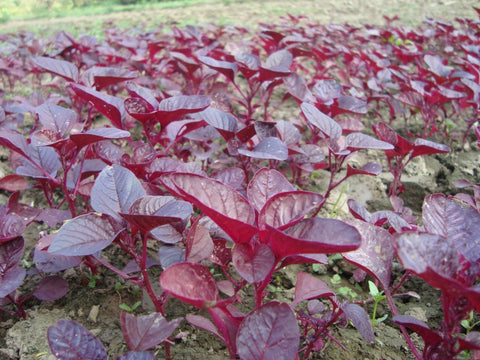Vitamin C Foods & Their Shocking Boost to Nitric Oxide Levels
Here is why we will add orange juice powder to our boosts
Once upon a time, some 100 million years ago, our mammalian genetic ancestors naturally produced what we’ve come to know as Vitamin C, and they did it all on their own. Surprisingly, they needed no dietary supplementation and were spared the wrath of scurvy, a disease caused by a lack of Vitamin C. Along with our doggo and cat pals, many species of animals produce Vitamin C on their own. However, humans, other primates, some mammals, a few fish, and bird species do not.
In this article, you will learn:
- How Vitamin C works from the foods we eat
- How Vitamin C amplifies nitric oxide production
- 19 Top benefits of Vitamin C
- Foods that deliver the most Vitamin C
How does Vitamin C work?

Also known as ascorbic acid, which literally means “anti-scurvy,” Vitamin C is an essential micronutrient, a baseline for optimal human health. A household vitamin, and one that is commonly known to help support our immunity, most people understand and accept the importance of Vitamin C. Since human cells cannot perform the important final phase of Vitamin C biosynthesis anymore (in particular, the conversion of the enzyme l-gulono-g-lactone into ascorbic acid) - we must eat Vitamin C (or drink it)! So here’s how our bodies work to process Vitamin C.
When ingested, food rich in Vitamin C, works to synthesize and use certain amino acids in our bodies. In particular, Vitamin C is needed to form our skin, blood vessels, cartilage, tendons, muscle, and collagen in bones. Collagen production is vital to our health, as it is the most abundant protein in our bodies. Collagen supports and connects all of our body parts, making it imperative for healthy bones and healthy movement.
Vitamin C is an effective antioxidant. Ever hear of a Vitamin C Detox? Some use high levels of Vitamin C to cleanse heavy metals from their systems. It’s also a widely known immune booster, anti-viral, and anti-aging supplement when dosed effectively. As seemingly essential and straightforward as Vitamin C is, scientists are only just uncovering all of the areas that Vitamin C plays an important role in. One of those roles is the boosted production of nitric oxide when paired with dietary nitrate.
How Vitamin C amplifies nitric oxide production

Now our favorite part! You know we love a great nitric oxide (NO) boost, and we’re always looking for ways to amplify NO levels. The science is here on how Vitamin C nitric oxide can help. In a recent study published by the Natural Library of Medicine, "Vitamin C and inorganic nitrate have been linked to enhanced nitric oxide (NO) production and reduced oxidative stress."
Another study published in PubMed shows that long-term (26-28 weeks) Vitamin C treatment increases vascular tetrahydrobiopterin levels and thus increases nitric oxide synthase activity. But what is tetrahydrobiopterin? It’s basically an essential co-factor for amino acids that are essential for nitric oxide synthase.
Science wins! Adding Vitamin C to our dietary nitrate efforts boosts the bioavailability of nitric oxide.
What is vitamin C good for? 19 top benefits of Vitamin C

In addition to the boost in nitric oxide bioavailability, Vitamin C also aids in a laundry list of other benefits backed by science.
Effective antioxidant, reducing free radical levels
Reduced stress, through the inhibition of cortisol production
Improve muscle damage and sports recovery
Reduction in length and severity of colds
Relieves workout related inflammation
Helps increase bioavailability of other vitamins and nutrients
Lung health and prevention of oxidative stress
Reduces the severity of depression
Foods that deliver the most Vitamin C

Uber Eats has nothing on Vitamin C's delivery capabilities, at least when it comes to health benefits. So, where do you get the most ascorbic acid bang for your farmer’s market buck? The kind people at the National Institutes of Health have measured in milligrams per serving the amount of ascorbic acid from top Vitamin C containing foods.
From the table below, you can see that the red peppers and orange juice max out on the daily recommended value of Vitamin C. Because of the packed punch and sweetness of orange, we’ve officially updated the ingredient profile of our favorite Boost products.
Source: National Institute of Health
Orange juice in Beet Boost & Spin Boost - Vitamin C Nitric Oxide
We increase Spin Boost and Beet Boost's benefits (and taste!) by adding real USA-grown oranges. The high nitrate of beetroot and red spinach is supercharged by orange and other fresh fruit juices that boost athletic endurance and add amazing taste. That tasty flavor is from the classic combination of orange and beets and orange plus spinach. Even better than the flavor is the packed punch and a laundry list of benefits that orange has on nitric oxide production.
You can get those improved health benefits from a daily dose of Beet Boost with its added anthocyanin profiles. And for an athletic performance jolt, Spin Boost can take your chosen physical activity to new heights. We're thrilled to include the powerhouse profile of orange to boost the delicious flavor and bioavailability of nitric oxide. If you haven't yet experienced this science-backed combo, it's time to start to do your health a huge favor.
Join our newsletter and get the latest news and product insights.






Comments (0)
There are no comments for this article. Be the first one to leave a message!